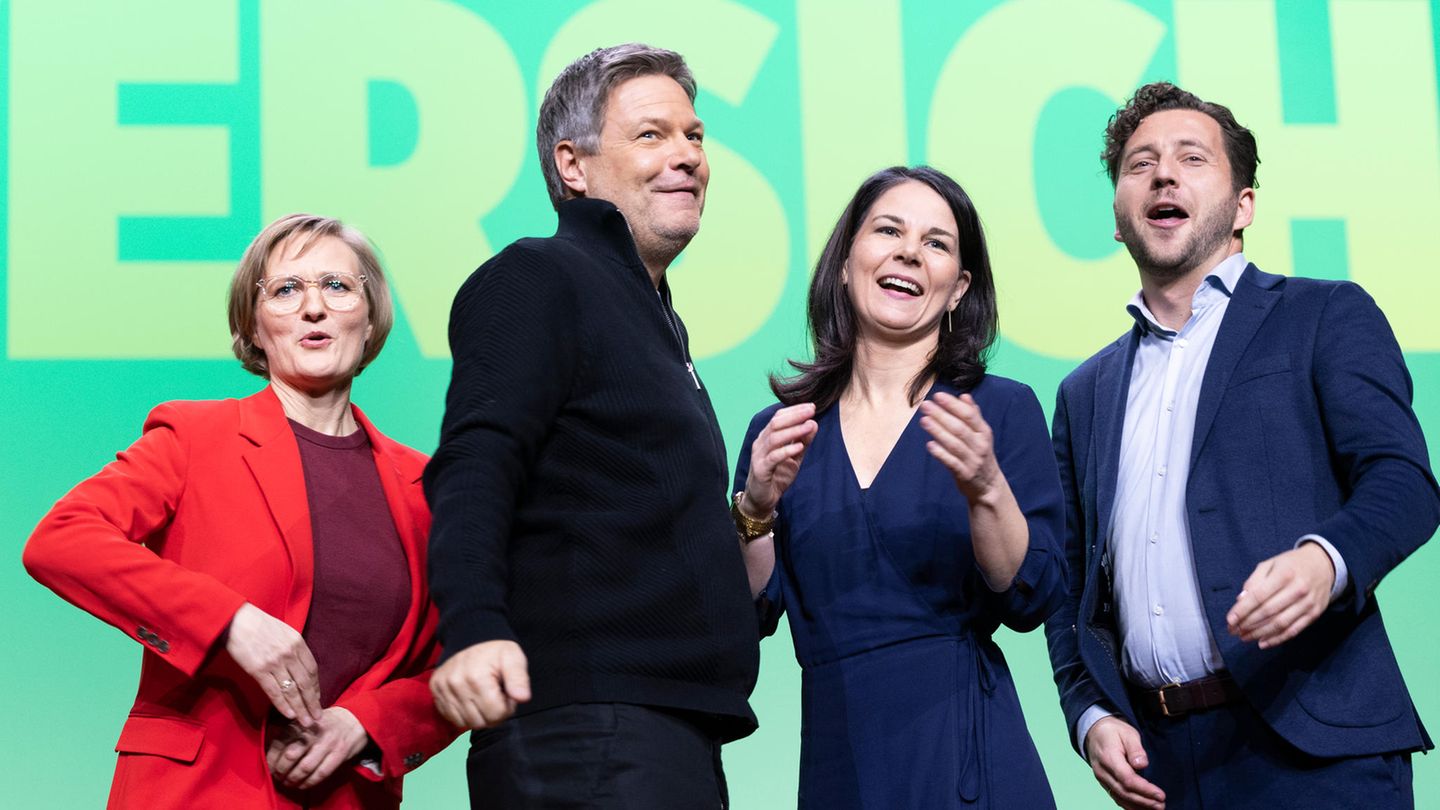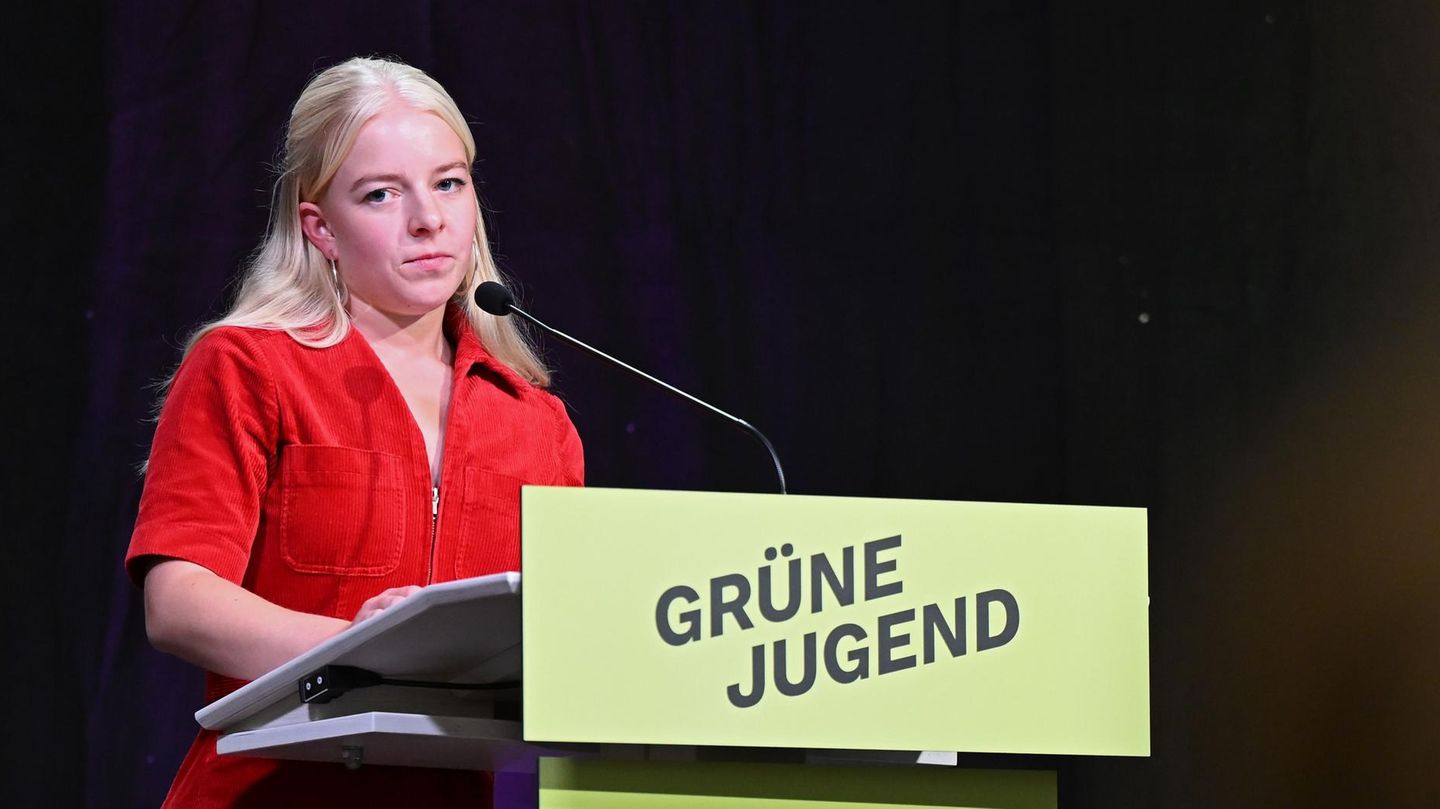Opinion
Black and green is nothing more than an illusion
Copy the current link
Merz’s migration plan reveals that a coalition between the Union and the Greens is almost impossible. This doesn’t just have to do with the AfD.
Merz was once again the main character at the Green party conference. Nobody was as present as the Union’s candidate for chancellor – with his 5-point plan to radically limit migration and his announcement that, if necessary, he would push it through the Bundestag with votes from the AfD.
A man loses his nerve out of fear of the dip in the polls, out of panic that he might be overtaken by the AfD in the last few meters. After Mannheim, Solingen, Magdeburg, Aschaffenburg, he is ready to tear down the AfD’s firewall. The whole “Nazi bashing” and “firewall talk,” seconded his general secretary Carsten Linnemann, should please stop now.
In contrast, the Greens present themselves like political adults at their party conference on Sunday in Berlin.
The Greens are appropriately outraged
Of course they see everything fundamentally differently. Of course, the outrage over Merz – both real and ritual – is appropriately great among the Greens. Of course there are warnings and complaints, and Habeck also calls the Merz plan a “step too far”.
But there is no short circuit.
Anyone who knows how sacred the issues of migration, democracy and the fight against the “right” are to the Greens will know: This is no small matter. The green stimulus-reflex scheme usually works, which in the worst case would have meant giving one’s own leadership clear instructions, even to the point of tying them, as to how they should behave in migration issues.
The Greens are proving to be just mature enough to refrain from officially drawing this red line during the election campaign. No “woe if” and no “if, then”. And so the biggest stir they create that day remains the demand for a nationwide ban on firecrackers. Really, you can say it so clearly, nothing else happens.
Three reasons why the Greens act this way
Friedrich Merz should not make the mistake of confusing green behavior with generosity. Because there are three reasons for the Greens to act this way. All three are rational.
First: The Greens are grown up enough to know that governing is better than not governing. They know that black-green is their most realistic, possibly even only, option if they want to continue to have a share in power after the election – Markus Söder or not. An exclusion also reduced their eternal criticism of Söder to absurdity.
This government will also make the party left keep quiet if Habeck continues to extend his outstretched hand to the Union. “Nobody makes any mistakes,” said the Green candidate for chancellor. They can be corrected. “Then quickly.” That will have to do for now.
Secondly, from a Green perspective, it is by no means clear whether and how much Merz would benefit from the political stunt. The plan may be met with cheers by the toughest Union ultras, but what about the walk-in customers, those people who really like a CDU with a Rhenish-liberal or Nordic-calm character? Merz shifts the Union’s coordinates just enough to the right that he creates a gap in the middle – which the Greens are all too keen to penetrate themselves.
They have gained 30,000 new members since they restarted in the fall. More than any other party. Despite the traffic lights being off. Yes, Habeck and Co. make mistakes, but they don’t seem to be doing anything wrong.
Thirdly, one look at Austria is enough to see where a country will end up if the firewall to the right is torn down and new ones are built between democratic parties: into ungovernability. In the end, it is the pure “state responsibility” that Foreign Minister Annalena Baerbock speaks of that, under these circumstances, prevents the Greens from ruling out a coalition with the Merz Union from the outset.
This also seems much more mature than CDU General Linnemann’s powerful announcement: “If we don’t have a coalition partner who will go along with this, then we just can’t govern.”
Here comes the catch
Of course that’s complete nonsense, but here’s the catch: it won’t help the Greens at all. Friedrich Merz will not come back down from the tree he has now climbed. The fact that he will abandon his 5-point plan after the election, for which he says he is now going “all in”, is as unlikely as the assumption that the Greens have forgotten their “Europe united” after election day. More precisely: it is impossible.
In terms of power politics, this means that anyone who wants to make common cause with the AfD in such a central area as migration policy before the election will have a hard time governing after the election with people who believe the complete opposite is right. There is hardly any room for a compromise. Either Merz dwarfs himself into a political joke figure even before he is elected chancellor. Or it will tear the Greens apart.
In other words: Black-Green at the federal level has never seemed as unlikely as it does now. Three weeks before the election there is little left but an illusion.
Source: Stern
I have been working in the news industry for over 6 years, first as a reporter and now as an editor. I have covered politics extensively, and my work has appeared in major newspapers and online news outlets around the world. In addition to my writing, I also contribute regularly to 24 Hours World.





